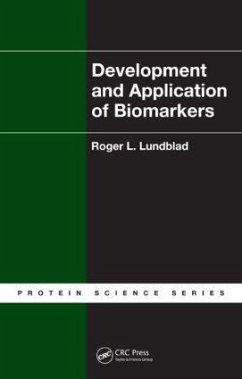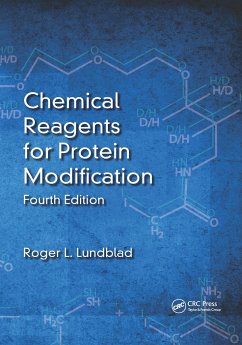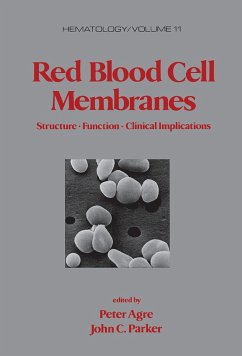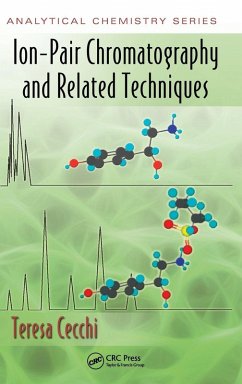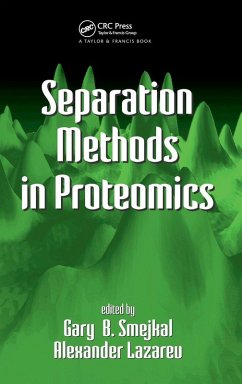
Development and Application of Biomarkers
Versandkostenfrei!
Versandfertig in 1-2 Wochen
93,99 €
inkl. MwSt.
Weitere Ausgaben:

PAYBACK Punkte
47 °P sammeln!
First introduced to biomedical research in 1980, the term biomarker has taken on a life of its own in recent years and has come to mean a number of things. In biomedical science, biomarker has evolved to most commonly mean a characteristic that can be used either as a diagnostic or a prognostic, but most significantly as a screening indicator for pathologies that tend to be somewhat silent prior to overt clinical display. Applying scientific rigor, as well as a disciplined approach to nomenclature, Roger Lundblad's Development and Application of Biomarkers rationalizes the current enthusiasm f...
First introduced to biomedical research in 1980, the term biomarker has taken on a life of its own in recent years and has come to mean a number of things. In biomedical science, biomarker has evolved to most commonly mean a characteristic that can be used either as a diagnostic or a prognostic, but most significantly as a screening indicator for pathologies that tend to be somewhat silent prior to overt clinical display. Applying scientific rigor, as well as a disciplined approach to nomenclature, Roger Lundblad's Development and Application of Biomarkers rationalizes the current enthusiasm for biomarkers with the use of well-established clinical laboratory analytes in clinical medicine. Highly respected for his work as both a classical protein scientist and as a pioneer in proteomics, Dr. Lundblad catalogs various biomarkers recognized in clinical medicine and, where possible, matches the expectations for advances in screening technologies with the realities of statistical analysis. More specifically, this important reference: Details an extensive list of biomarkers for various stages of a number of cancer types including ovarian, pancreatic, prostate, and breast cancer Looks at how proteomics is used for the discovery and validation of biomarkers Explores the use of microarray technology, ultra-high performance liquid chromatography, and computational bioinformatic approaches for the discovery and use of biomarkers Examines the use of cells and cell fragments as more complex biomarkers Organizes a host of significant biomarkers and essential research by type and use in a series of readily accessible tables Throughout this volume, Dr. Lundblad encourages consideration of biomarkers more as a concept than as laboratory analytes, emphasizing the relation between the discovery of a biomarker and the biology underlying its production. Ultimately, it is a thorough understanding of that underlying biology that will lead to the development of assays that are robust and reproducible, as well as clinically significant.





